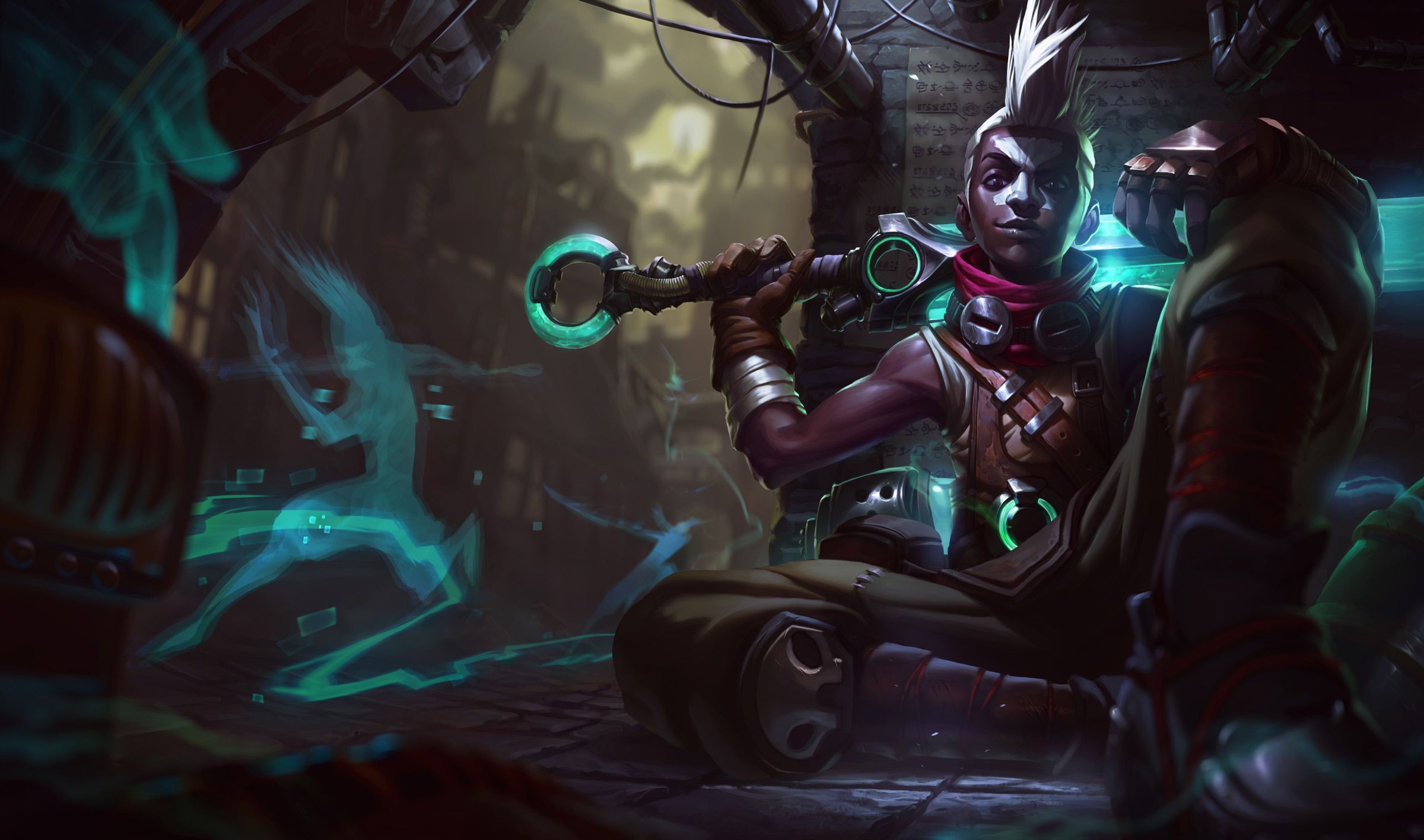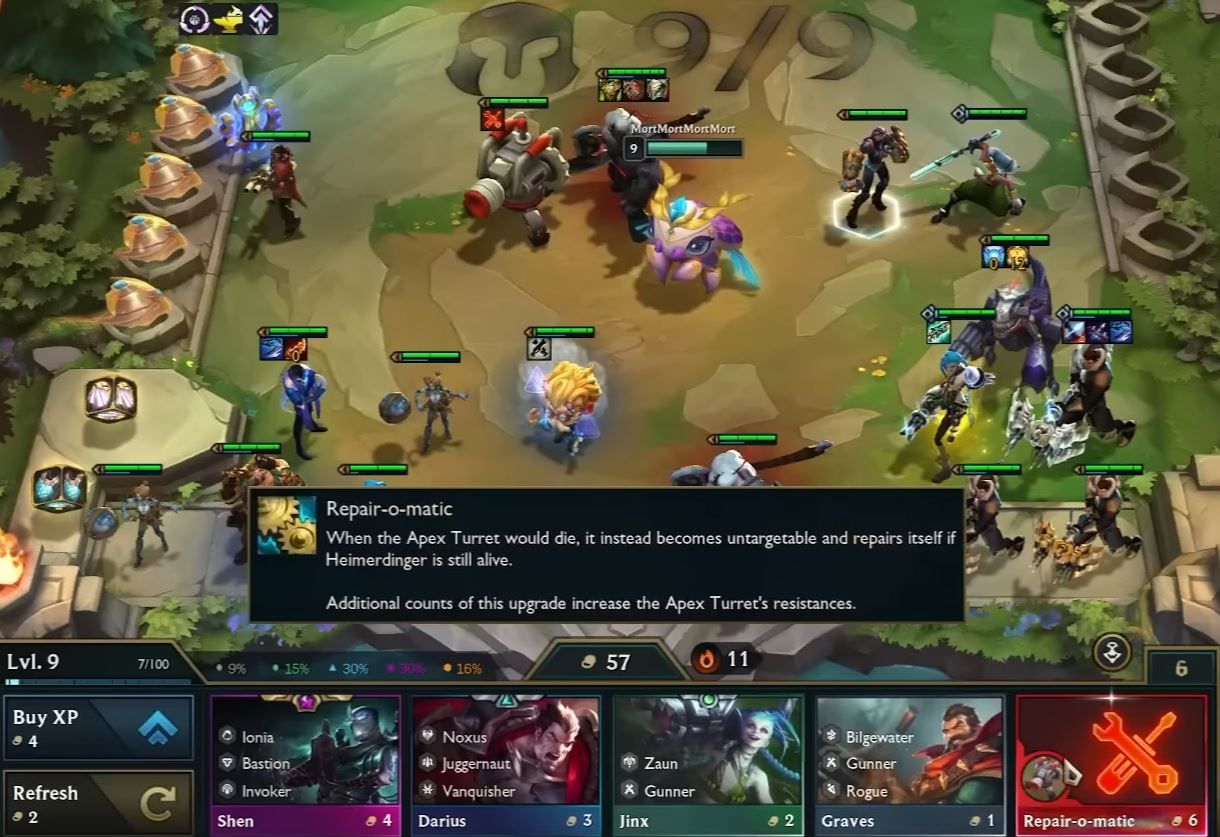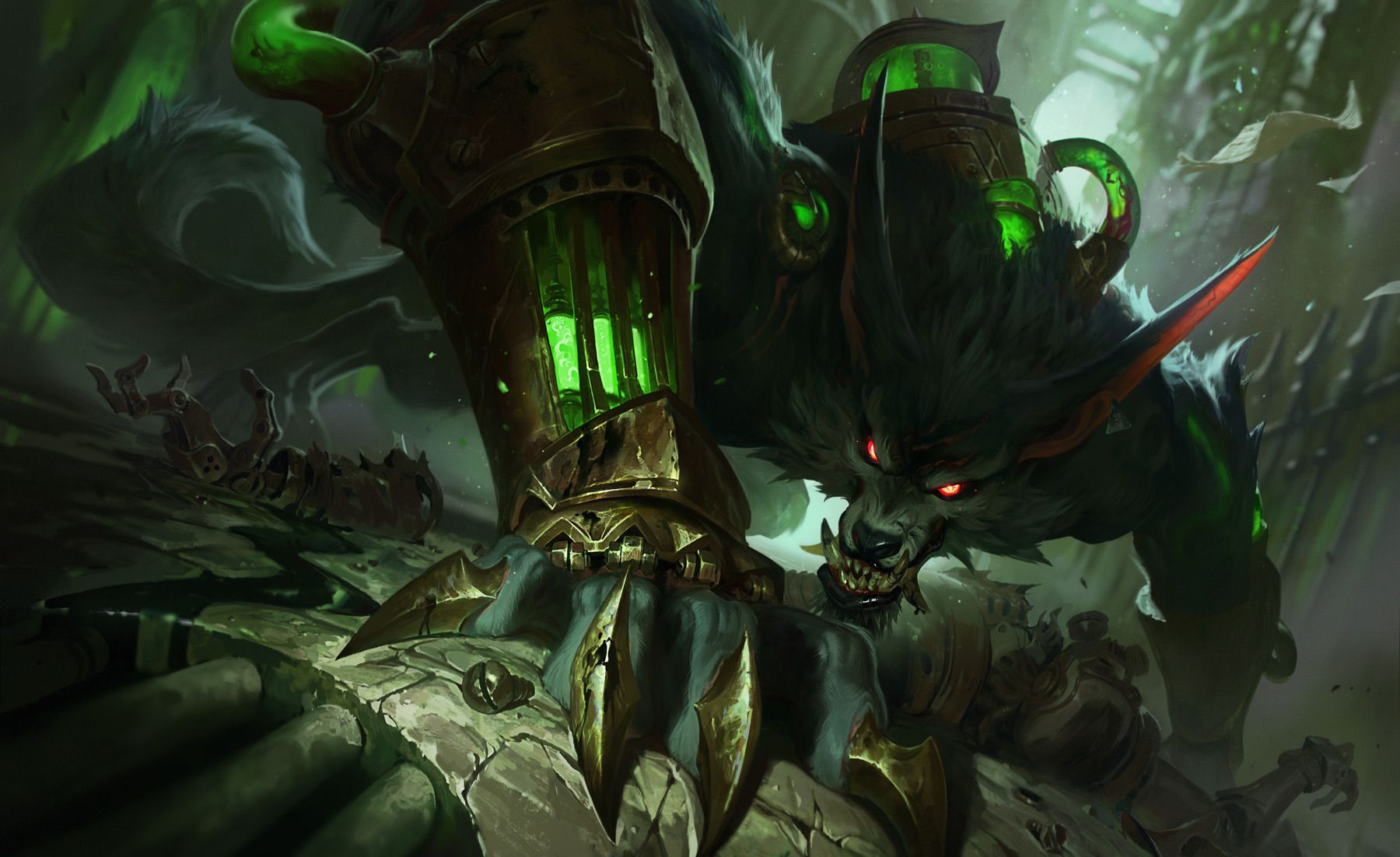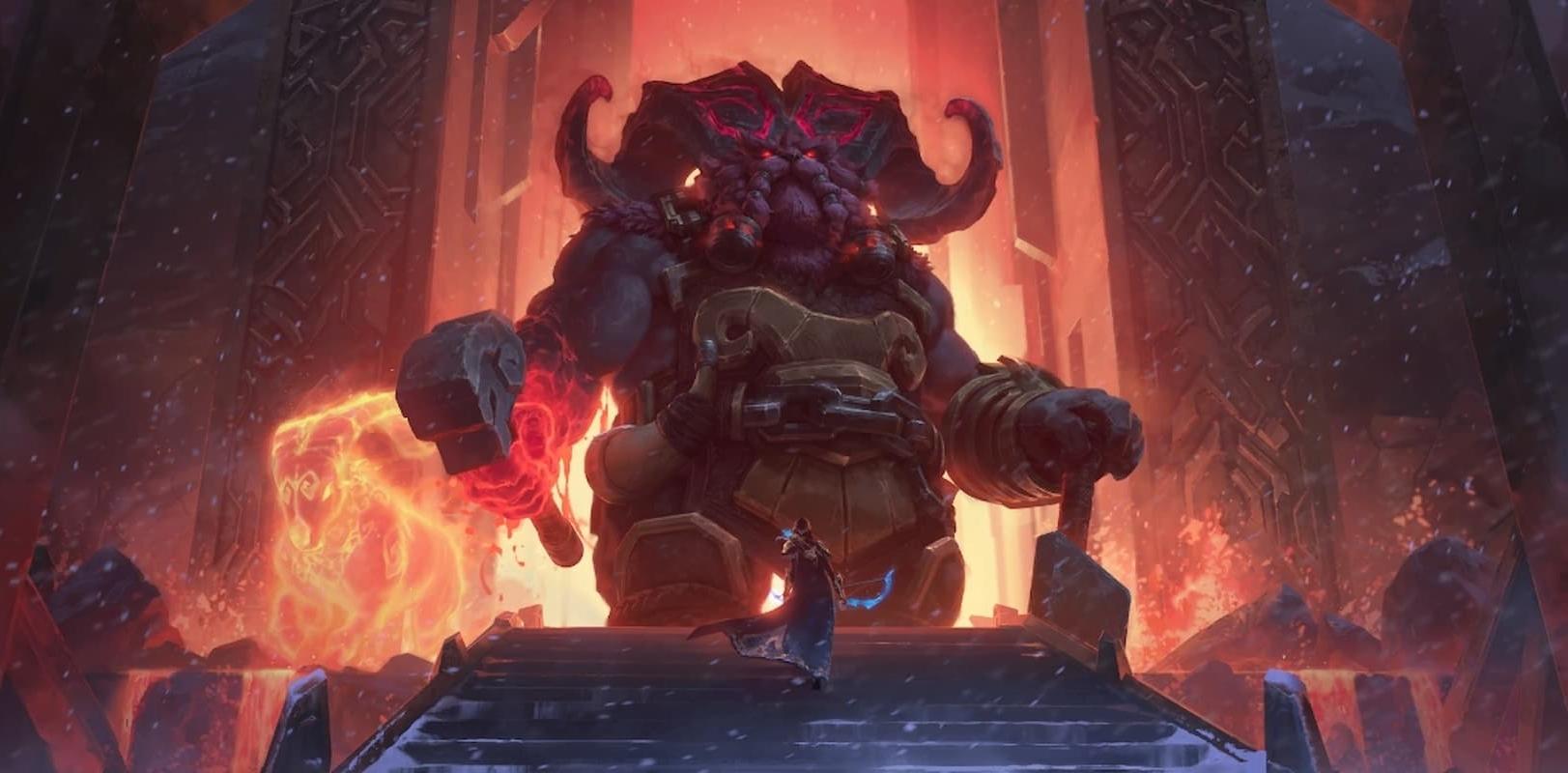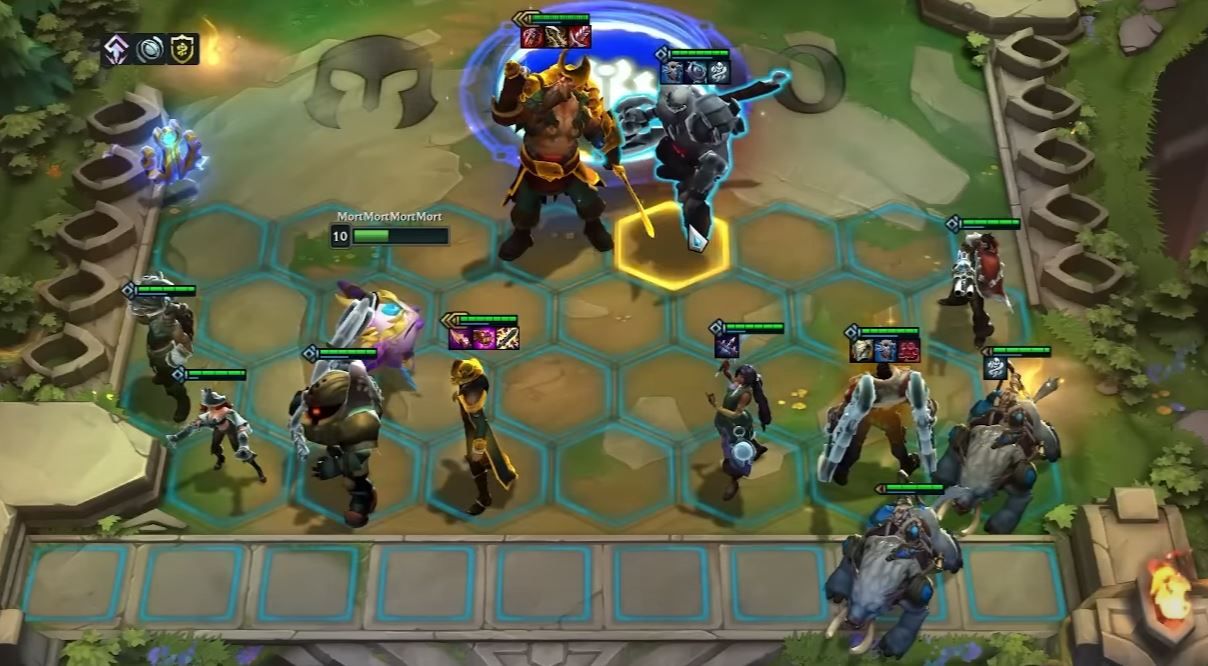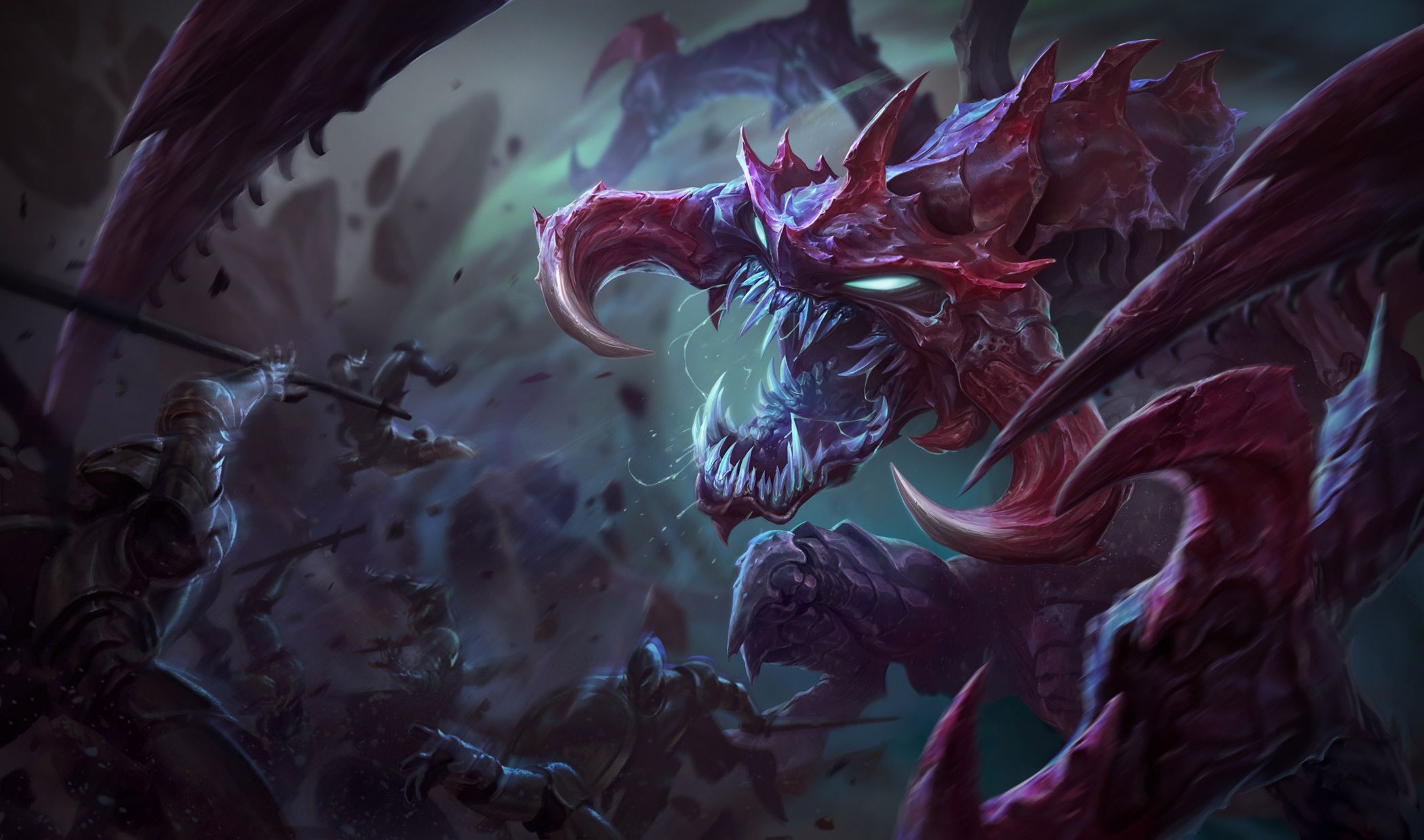/Dev TFT: Runeterra Reforged Learnings
With about a month left in Runeterra Reforged, it’s time to reflect upon what we promised to deliver this set and how we can improve for our next set! There will be a few spoilers for our next set, including the mention of taking TFT to Level 10, so grab a hot cup of your favorite beverage and enjoy!
These are never short or simple, so here’s a TL;DR:
Looking Back: This is where we directly respond to the goals we created last set in our previous Learnings article.
AlmostFour Years Later: In our last learnings article we took time here to reflect upon TFT’s core systems, acknowledging their growth, and alluding to our item rework.- Backline Access - Hackers & Assassins: We made backline access harder to pull off with Rogue than previous Hackers & Assassins, but we really want to try a set without backline access from Traits entirely. Our next set will be that set.
- Threats - Hyper-flexible Champions: Threats were one of our biggest successes in Monsters Attack! due to their flexibility. In Runeterra Reforged we had Heimerdinger, Bel’Veth, and even Ryze as exceptionally flexible units, but we want to do even more exploration in this space past 5-costs in the future.
- Augments - +1 Traits: Our Augments that gave +1 to a trait went much better this set. By not including +1’s to our big verticals (Noxus, Ionia, etc), we were able to keep their Prismatic power very high. But for Set 10 there will not be any Souls/Crowns/Hearts! This is because that design space, adding extra towards a trait, is being used for the set’s mechanic….
- Augments - Refreshing Content: Our Augment refresh was a huge success in Runeterra Reforged. In the future we can’t do as big of a refresh every set, but we’re going to make sure every set includes a bunch of new Augments and then invest in the Augment space more due to how much of an impact it has on sets feeling new and exciting.
- Hero Augments: As the core mechanic of Monsters Attack!, Hero Augments brought a ton of lessons in the design space that we applied to current and future Augments. We’re happy with our current amount of Hero Augments, and will likely do more of these in the future, but not in the massive amounts of Monsters Attack!
Looking Forward: This is where we set out a list of goals to improve upon for the next set!
- Legends: With Legends the team experimented with the ability to pick your own identity/playstyle prior to getting in a game. While the concept is promising, we know that we’d need to craft a system that better hits the goals of Legends, so for now, expect Legends to be absent for our next set.
- Region Portals: Region Portals rocked. Players loved the game to game variance they created and they solved for a lot of challenges we had with TFT’s opening Carousel.
- Power Bloat: With Portals, Augments, and player skill, the average lobby’s power has exceeded what we’d typically expect from past sets, with 3-star four and even five costs becoming increasingly common to hit. The big news is, we have a solution, we’re cranking the Level system up to 10 to make hitting those high cost units a more significant investment in XP!
- Skins and Accessibility: Base skins made learning the new units easier than ever, and the team really loves playing with Runeterra lore. So in the future, expect to see more Runterra based sets and iterations on gameplay accessibility!
- Exciting and Unique Low Cost Units: Runeterra Reforged has some of our most exciting low cost units of all time! The team took a ton of time making low cost units interesting, and having comps that highlight their fantasies, and this is something that we want to continue to take into future sets when we can.
- Set Complexity and Balance: Runeterra Reforged was our most complex set to date, and we feel like we’ve neared the complexity ceiling of our game. With all this complexity (and other reasons) we had patches where balance was not ideal. The next set will not be less complex, so it’s up to us to raise our balance heuristics alongside TFT’s complexity.
Looking Back
To start off, let’s take a look at the last learnings article and see how we did.
Almost Four Years Later:
In our last learnings article we took time to reflect upon TFT’s core systems (items, champions, and traits), acknowledging the growth we had on each of them, and the alluding to the one system that could use a little more love (items) without saying it explicitly (we wanted to save that surprise for our final mid-set).
We delivered on the item rework, which led to a clearer rule system, a better way to balance each item category, and less dead items overall. We realize that the system still isn’t perfect, for example if you have a Cloak and a Glove you never want to slam Quicksilver during stage 2, but for the most part we are happy and proud of the extensive overhaul that came alongside Horizonbound.
Past the more visible item overhaul, we called out that we would continue to add more quality of life changes throughout the set. To this end, we were also successful. The inspect panel, item distribution across PvE rounds, an increased use of various Anvil types, and more.
We’re proud of the improvements we shipped with Runeterra Reforged and we’re excited to keep them coming throughout the end of 2023 and 2024!
Backline Access - Hackers & Assassins:
This section is less celebratory than the one above. With Runeterra Reforged we tried Rogue, as our new version of backline access, and they ended up in one of two states.
For the first half of the set, it was mostly unplayed and weak, as the Rogues themselves didn’t offer enough output to really be threatening to the backline and be worth running 4 of them in your comp. People would run two to get the aggro drop for someone like Katarina, but going to 4 Rogue was out of the question. And then when we got it to a viable state in the second half of the set, it was not only good, but was just as frustrating as other backline access traits of the past. Because the movement happened during combat, you couldn’t really do anything about it like clump or position. If the rogues had enough damage, you were going to get destroyed.
So with our next set, we’re going to go the route of 0 backline access traits. There will still be spells and ways to access the backline, but no trait that’s identity is all about hopping on your backliner’s face. This will give us a break from that concept for at least a set as we continue to explore those concepts behind the scenes. They may come back, but we want to find the version that isn’t at extreme levels of frustration.
Threats - Hyper-flexible Champions:
With Runeterra Reforged we had a couple of hyper-flexible champions, but not in the same way Monsters Attack! had in having an entire dedicated trait, Threats. Heimerdinger was certainly close to a Threat, as he belonged in a lot of comps as a powerful unit that could be adjusted to meet the needs of your comp with upgrades. Need healing reduction, there’s a mod for that. Need Shred/Sunder, there’s a mod for that. Need gold, well hello goldinator! You get it. But, while Heimerdinger could do all that, he could do ALL THAT; and that was a problem as he was too powerful and flexible to pass up on most boards.
To a lesser extent, Bel’Veth was also fairly flexible. If you had a spare Rapid Firecannon lying around, or maybe you hit Scoped Weapons (Augment) then slot in Bel’Veth for some consistent DPS.
That being said, we still want to explore this space more in the non 5-cost realm. Champs likes Morgana from Monsters Attack! were a huge success, and we’d love to experiment with them more—not you though Rammus! They may not be right away in the next set, but it’s still a space we think has a ton of potential.
Riot Prism’s (editor’s) note: Rammus was also a great success as a flexible unit you could add to your comp when playing in an AD heavy lobby. In fact, I think Rammus was my favorite unit from Monsters Attack! and it would be a shame not to mention him here.
Augments - +1 Traits:
In Monsters Attack!, Augments that gave +1 to a trait often led to huge power swings by granting early access to reach trait tiers meant for the late game such as: LaserCorps, Gadgeteen, Star Guardian, and Riftwalker. Our Augments that gave +1 to a trait went much better this set. By not including +1’s to our big verticals (Noxus, Ionia, etc), we were able to keep their Prismatic power very high. There were some that still felt a bit swingy like Sorcerer Heart, but overall this was a big improvement.
What’s interesting though is that for our next set there will not be any Souls/Crowns/Hearts! This is because that design space, adding extra towards a trait, is being used for the set’s mechanic…. That being said, we’ll have to continue to keep this in mind for sets past our tenth. As we increase our augment library, we may cut back on just how accessible these are so that we can keep them rare and exciting. If they are too common, the power has to come down, which is just less fun.
Augments - Refreshing Content:
With Monsters Attack! our Augment design time was mostly spent on Hero Augments, the core mechanic. But this left us playing another set with the same core Augments, which was a bit too much of the same content. At that point, we had been playing with a lot of the same augments for 3 sets, and I know I was tired of seeing Celestial Blessing every other game.
With Runeterra Reforged we had a huge Augment refresh that was a MASSIVE success in making the set feel fresh, fun, and new! I’m not going to say that every new augment was perfect, but just having a ton of new augments to play with was incredibly refreshing and helped the set feel even more novel. In the future we can’t do as big of a refresh every set, but we’re going to make sure every set includes a bunch of new Augments and then invest in the Augment space more due to how much of an impact it has on sets feeling new and exciting. We’re also going to be exploring different outputs on augments, so be on the lookout for those in the future.
Hero Augments:
Hero Augments were the core mechanic for Monsters Attack!, and we learned a lot from them throughout that set. Learnings that we applied in Runeterra Reforge by including a few Hero Augments in this set. Turning champs like Warwick, Sett, and Swain who were tanks into unique carries was super fun. Once the balance was right, these opened up unique play styles that added compositional variety.
We will likely do more of these in the future, but not in massive volumes or anything. The 2-cost tank space will also continue to be a ripe space for these as this space is where going from 0 2-cost to Hero feels most impactful, but we’re hoping we can explore more avenues for Hero Augments in the future as well.
Looking Forward
Legends:
Legends were an interesting attempt at letting players pick their own identity, and having some control in the game's outputs. We found that for our newer and lower ranked players, Legends were really nice, as it made the game more approachable by allowing players to choose their general strategy ahead over the game. Being one of the Legends that allows for the most control of variance, Twisted Fate, was incredibly popular at lower ranks since he reduced the risks of ending up with items you weren’t as comfortable with and allowed players to pursue popular community guides.
However at higher ranks, the optimization side of things came out much heavier. Even if it was incorrect, if the belief was that Ornn would give you a 1% edge, all of a sudden there were 5-7 Ornn players per lobby. This ended up reducing the variance for our most dedicated players who need that variance to keep the game fun and interesting after 500+ games.
We still think there is something in the space of picking your playstyle ahead of time, but we didn’t quite nail it here. So for now, expect Legends to not be a part of our next set. In the future if we find a version of Legends that hits the goals better, we may revisit them in a future set.
Region Portals:
As the primary mechanic for Runeterra Reforged, Region Portals solved a lot of challenges for TFT. The opening carousel became a unique social moment (who hasn’t been one guy’d) while also removing the APM (Actions Per Minute) check which was great. The Portals also added unique game to game variance, where one game you’d be playing Scuttle Puddle, then the next you’re playing Ehrenmount and those felt very different, which was awesome.
There were two misses with Region Portals though. The first is that their interaction with Legends led to people sometimes immediately having advantages. If an Ezreal player was able to steer into Ecliptic Vaults, they had a massive compounding interest advantage. We don’t usually like to see players have that level of advantage right away. The second was some of the more complex portals. Things like House Lightshield, The Sump, Noxkraya, and others just weren’t what players wanted in their experience. People love taking the base game and adding a few bonus sprinkles, they didn’t really love the massive warping in how they needed to position and think about the game. This matches our findings from Galaxies as well.
Before we head to the next section, I’d be remiss not to end this by emphasizing just how successful Region Portals were. Players loved them, and when we think about the greatest hits of TFT, we will have to include Portals in that conversation.
Power Bloat:
One of the more unique challenges TFT is facing now is that a combination of increasing average player skill, more resources from things like Portals and Augments, and general game pacing, is leading to some of our more rare outcomes like 3-star Four and Five costs becoming more common than we’d like. Players have just gotten too good and know where the line is and how to hit those. So we’re going to be making some changes in the next set, and more in the future to keep pace with the skill of our players. It’s awesome to see how much thought and literal studying our highest skill players put into TFT, and it’s our job to keep making TFT something worth that effort and passion.
For the next set you’re going to see some changes to things like the bag sizes, drop odds, and the XP costs for each level. It might not be what you’re expecting though, but the big news is that Level 10 is now a permanent part of the game! If you want to hit those 3-star 5-costs, you’re likely going to have to go all the way to 10 before it’s going to be doable.
In the future, we’re also going to begin exploring what a world looks like with new potential high moments to chase after. Still pretty vague for now, but as TFT heads into year five, it’s clear we’ve got to find some new things for you to explore and challenges for you to hit, cause y’all are getting really freaking good at TFT—props to y’all.
Skins and Accessibility:
One of the biggest wins of Runeterra Reforged was that we got to go back to base skinned champions. This is something we hadn’t done since our launch set, and we were super excited to see how it would be received. The answer was it went better than expected! The fact that champions were more approachable and easier to read meant TFT was at an all time high in terms of accessibility for people who play League of Legends to give it another shot.
We can’t do this every set by any means, as some players did miss the unique skins, and those skins give us anchor points into fun themes that tie the set together. However I can say that we are likely to not wait another 8 sets before going back to Runeterra. We’re such big lore-heads on the team, that we’re always itching to go back to Runeterra and play with our favorite friends, rivals, and angry pirate lovers. Plus, the space is ripe with so many potential ideas and has that advantage of being so easy to read. So in the future, expect to see more Runterra based sets! Not right away or anything, but we probably won’t wait 8 sets to do it again.
Exciting and Unique Low Cost Units:
Cho’Gath and Kayle were some of the most exciting 1-costs of all time. And while they each had moments in the set where they were tough to balance (due to their kit’s complexity), almost all players will have a story about hyper rolling a favorite 1-cost. This experience stands out starkly from sets of the past, where we typically budgeted most of our complexity in higher cost champions, but with Runeterra Reforged we were able to directly notice the compositional variety and FUN (yes games are about fun) that interesting and unique 1-costs can create.
And this didn’t stop at just 1-costs. Our 2-costs also created entire comps that focused around them either with Hero Augments like The Boss (Sett), or Ravenous Hunter (Warwick), or with interesting passives such as Double Up Taliyah’s knock up synergy, or the Darkin combo of Naafiri and Aatrox.
The team took a ton of time making low cost units interesting, and having comps that highlight their fantasies, and this is something that we want to continue to take into future sets. While not every 1-cost can be a reroll carry like Graves, or Samira, or have a cool 4-star version like Poppy, we want to make sure that a few of our low-cost units do have unique ways to play them.
Set Complexity and Balance:
When you’re constantly changing a competitive PvP game there's bound to be balance issues. With the amount of complexity and change that Runeterra Reforged brough to TFT, it was especially vulnerable to balance issues, but on behalf of the live balance team, we know there’s work to be done. Let’s talk about the factors that led to some of our balance issues:
- Set Complexity: Perhaps the largest factor in TFT’s balance was set complexity. The way Region Portals could interact with some Augments, and various traits/champions could create rare cases of power ceilings that blew the roof off of balance expectations.
- Legends: We mentioned this earlier, but guaranteeing access to specific Augments made it so our Augment balance had to be as close to perfect as possible, but with the variability of Region Portals, there were game states that severely favored specific Augments. In addition to this, in our pursuit to make each Legend viable throughout the set we ran into situations where we overbuffed specific Legends (Draven had their time, and even Bard had a few days of dominance). And when a Legend did contain an overpowered Augment, you could guarantee it every game, which exacerbated the issue.
- Growing Pains: We have a big team now, but people don’t get trained up overnight, and with a larger team there’s a larger need for organization, task management and distribution that we had to learn along the way.
We believe that TFT’s complexity is nearing its ceiling, but that complexity is not going down with our next set. I will say that we are at the complexity level we want to be at now. Now that we’ve hit this complexity ceiling it’s just time for us to get better at balancing with this raised level of complexity.
And with that, thanks for Reforging Runeterra amidst a Convergence storm, sharing top fours, feeding our hungriest 1-cost to date, and giving us your feedback along the way. These articles are just one way of acknowledging your feedback; the other way—the more important one—is by applying our learnings in our next set and beyond.
In fact, we’ll have a ton to share pretty soon… really soon. So mark your calendars for November 5th, cause that’s the date we’re dropping TFT’s biggest Set announcement to date during the Runeterra Reforged Championship Finals! Until next time, take it easy!
